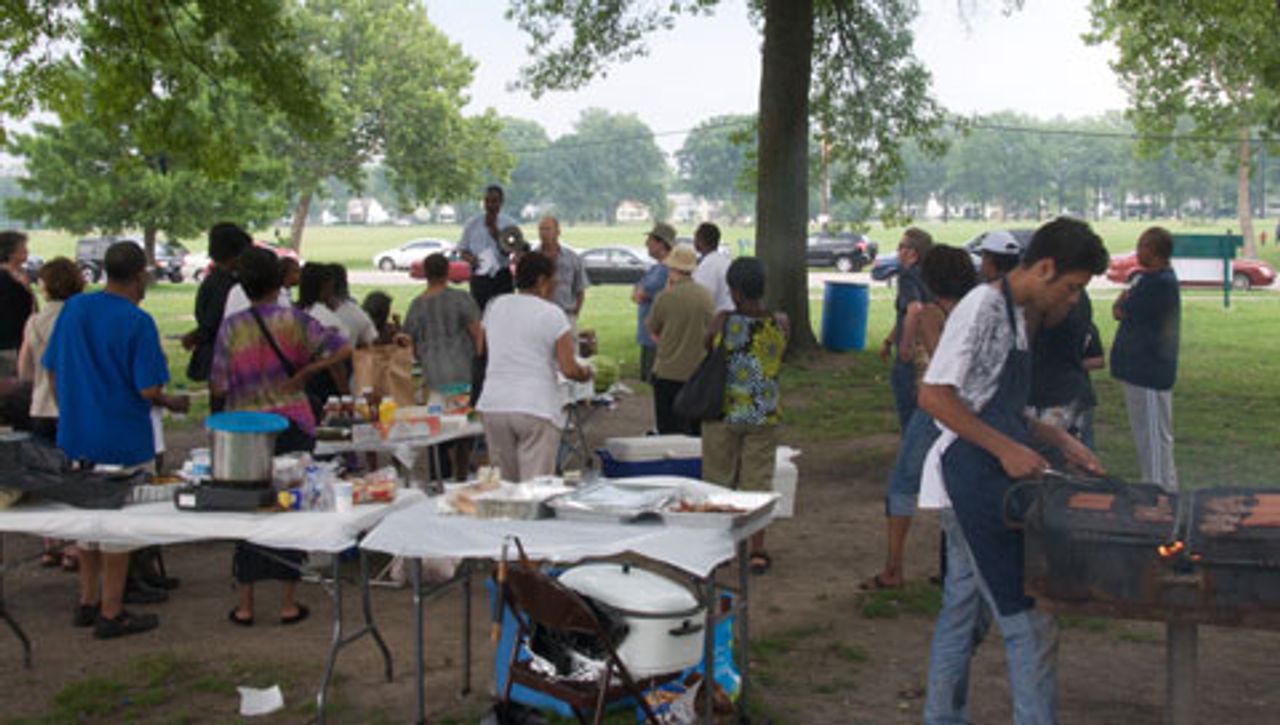 The CAUS picnic at River Rouge Park
The CAUS picnic at River Rouge ParkThe Committee Against Utility Shutoffs (CAUS) held its first picnic last Saturday at River Rouge Park in Detroit’s west side. CAUS members worked hard to make the event a successful one. Barbecue meats, homemade dishes and drinks were generously contributed by members and supporters. Music was provided by local DJ, Ed Robinson of Party Train Productions.
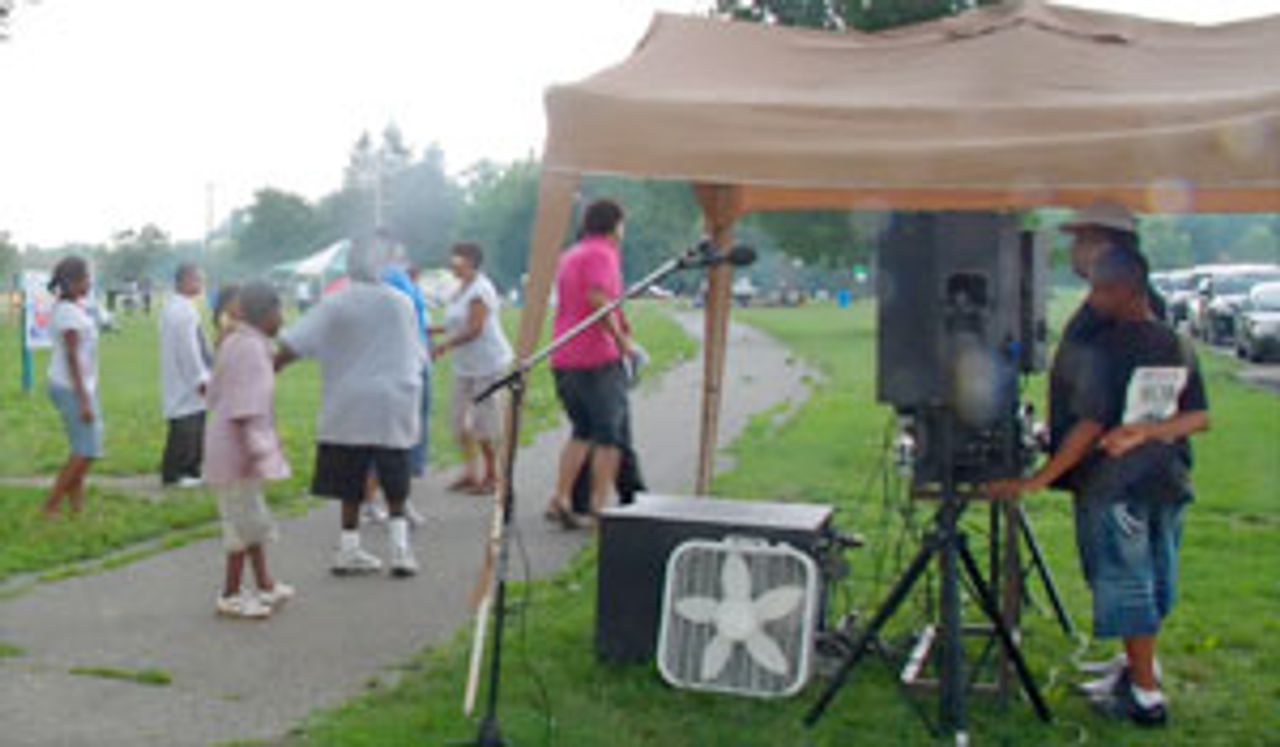 A DJ provided music for the event
A DJ provided music for the eventCAUS was founded last year, after the Socialist Equality Party sponsored the Citizens’ Inquiry into the Dexter Avenue Fire. By the time the inquiry was held in March, the 2010 death toll in Detroit directly resulting from utility shutoffs had reached twelve, including the two brothers, Tyrone and Marvin Allen, along with Lynn Greer, who died in the house fire in January on Dexter Avenue, and three of Sylvia Young’s children in a house fire on Bangor Street only hours after DTE shut off utilities.
The findings of the commission were published in April 2010. The direct connection between utility shutoffs and house fires was clearly established, as well as the direct collusion of the Michigan Democratic Party with DTE Energy. Earlier this year CAUS sponsored a march through the Dexter Avenue neighborhood, calling on workers to fight for utilities as a basic social right.
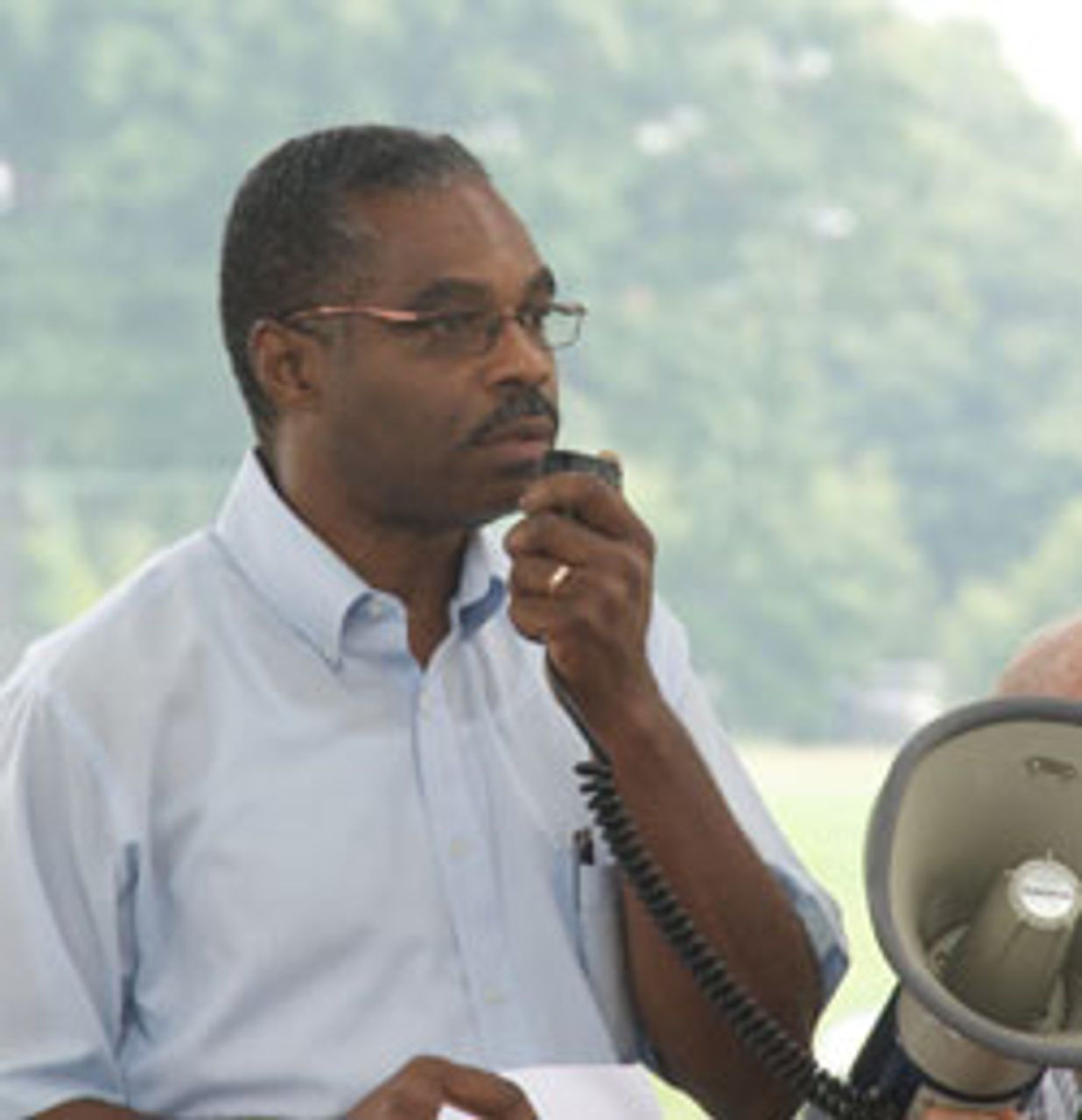 Lawrence Porter addresses picnic
Lawrence Porter addresses picnicLawrence Porter, assistant national secretary of the Socialist Equality Party and chairman of CAUS, spoke to those attending the picnic.
Porter noted that more people nationwide die because of a lack of utilities in the summer than in the winter, due to heat stroke without air conditioning. In the face of a record heat wave in the South, the federal Low Income Home Energy Assistance Program (LIHEAP), which provides utility assistance, is being slashed drastically and is unable to come close to meeting the need.
Porter explained the political context, emphasizing the role of the Obama administration in pushing for trillions of dollars in cuts to domestic programs, including LIHEAP and health care and retirement programs. The actions of Obama proved the correctness of CAUS’s foundation.
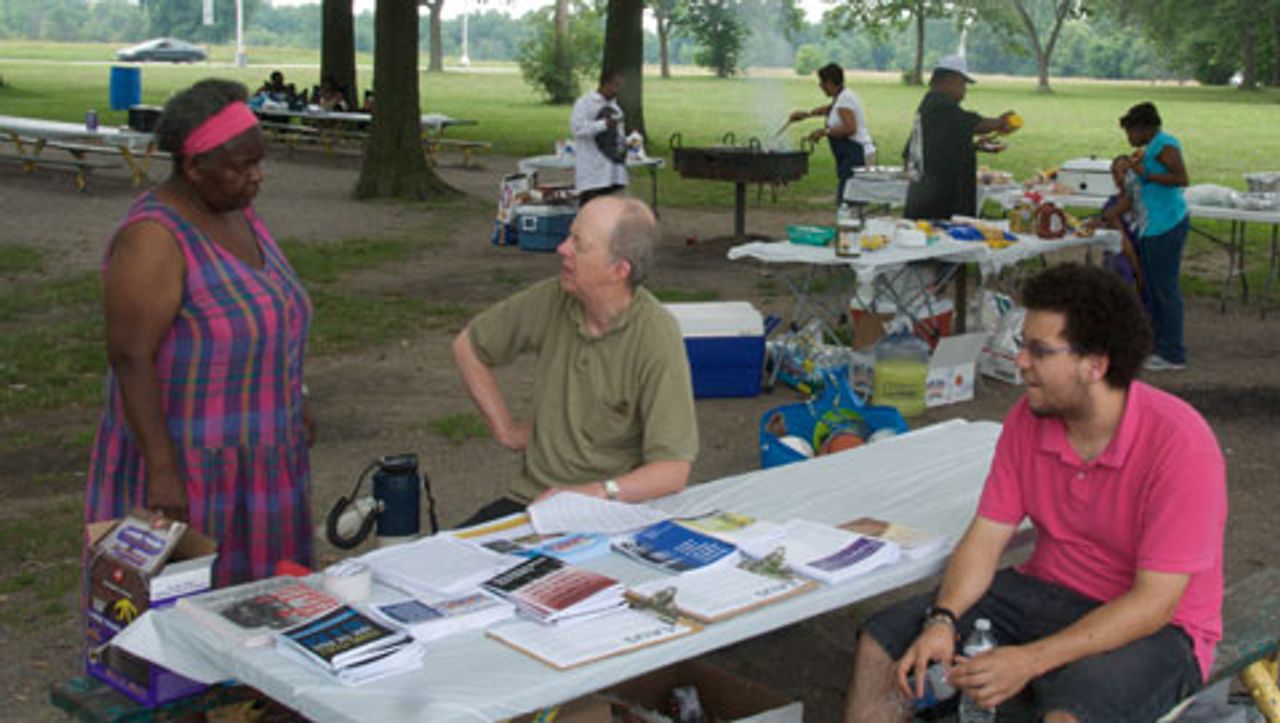 Political literature and discussion at the picnic
Political literature and discussion at the picnic“We have always insisted that the rights of the working class, including the right to utilities, can be won only through the independent mobilization of workers in opposition to the Democrats and Republicans,” Porter said. “Both these parties represent the corporations and the wealthy.” He concluded by calling on all CAUS members to join and help build the Socialist Equality Party.
Among those attending the picnic were Sylvia Young and her surviving children and Wanda Scott, who had her father taken from her home after her utilities had been shut off during the cold winter months.
Valeria McKinstry, a CAUS member from the Robinwood Street neighborhood, which was hit by multiple fires last September, also attended. She told the WSWS, “I just though it was really nice. Everyone pitched in and did a wonderful job.”
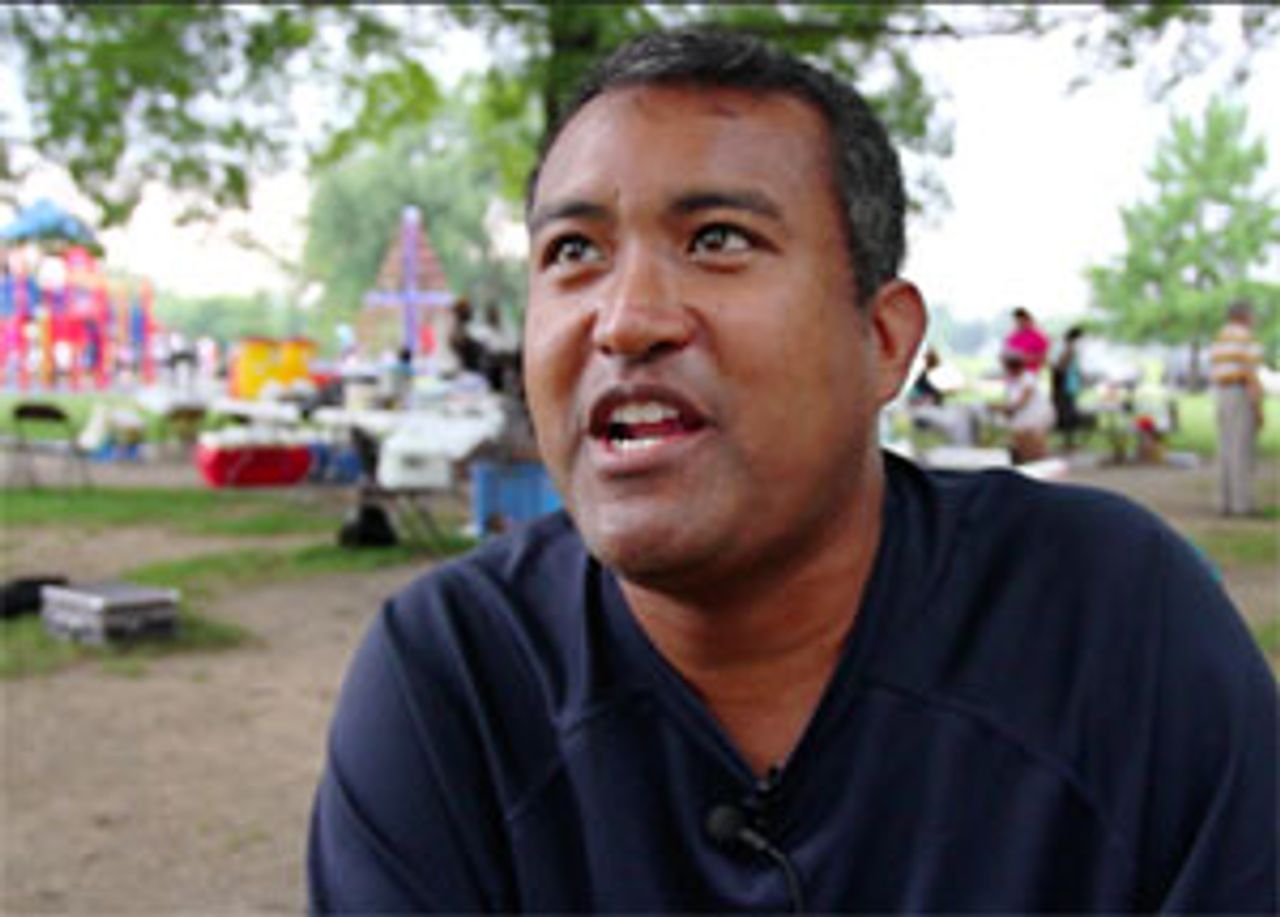 Eric Ray
Eric RayCAUS supporter Eric Ray attended both the Citizens Inquiry and the CAUS march. He came all the way from Columbus, Ohio to attend the picnic.
“The Democrats are supposedly a working class party, but as people are finding out, they’re actually cutting social programs. I think it’s important that CAUS provides an alternative to the capitalist privatization of utilities. I think that people are learning that Democrats like Obama, Detroit Mayor David Bing and the former governor Jennifer Grandholm are not serving their interests.
“If it was a Republican in office making all these cuts, people would say, ‘well, that’s the Republicans. That’s what they do.’ But now that it’s a Democratic administration, you’re finding that the façade is being chipped away.”
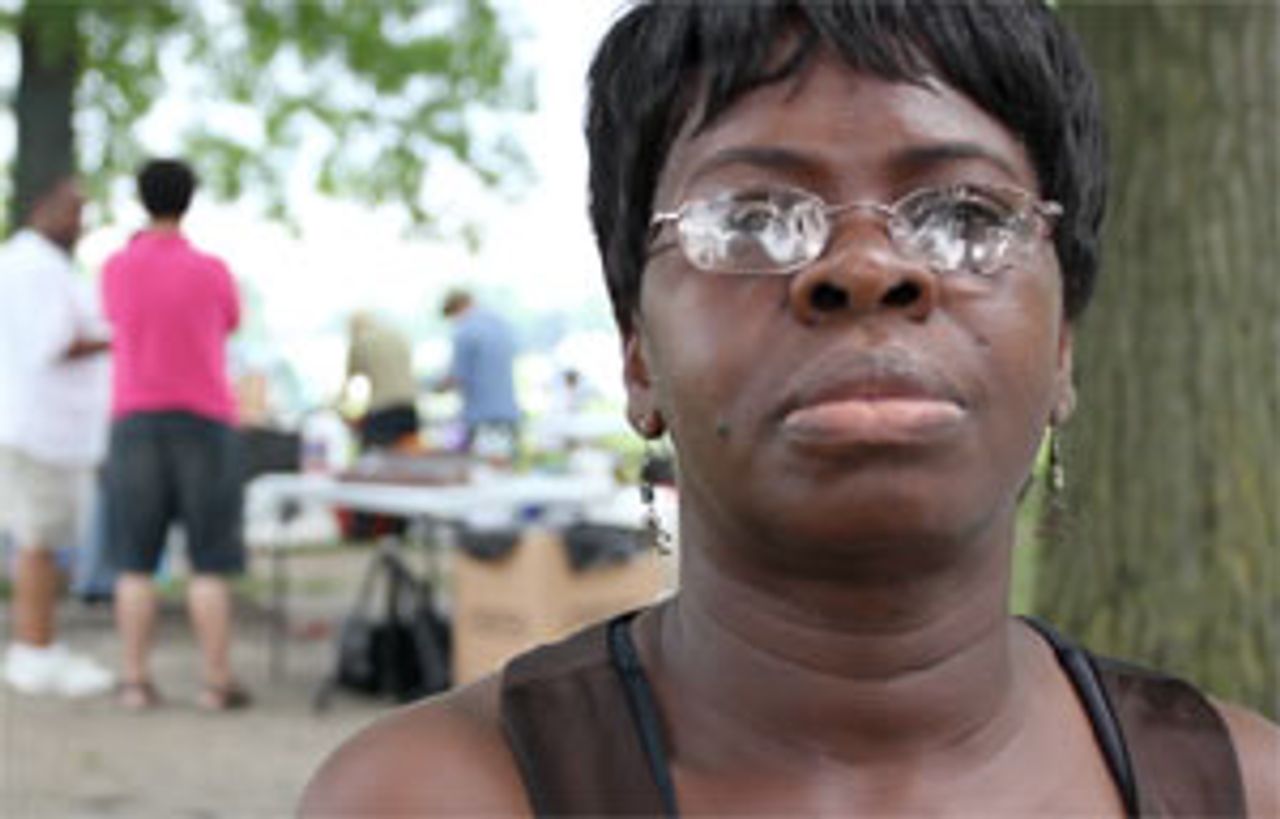 Doritha Chapman
Doritha ChapmanDoritha Chapman said of CAUS: “I’ve been interested in the program since the march. Utility shutoffs have been an ongoing problem since the seventies. A very close family of ours lost their children due to a shutoff. There was no gas in the house during the wintertime.
“I don’t think that it’s fair at all. I think that utilities should be affordable. It should be that if you can’t pay you don’t have to. I just don’t think that is fair because this is something that we need. We need heat, and we need lights.
“A lot of people … you’d be surprised … you go into the neighborhood and the houses are dark, but you see people living there. And they are living with no utilities.
“I’m really appreciative of the CAUS organization. I wish that CAUS would have been organized even a little sooner.”
